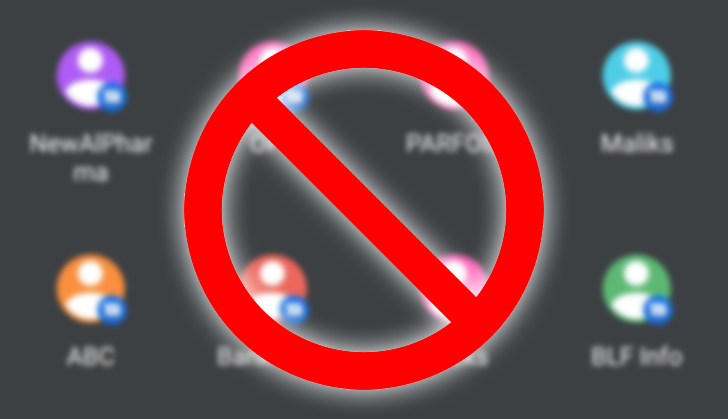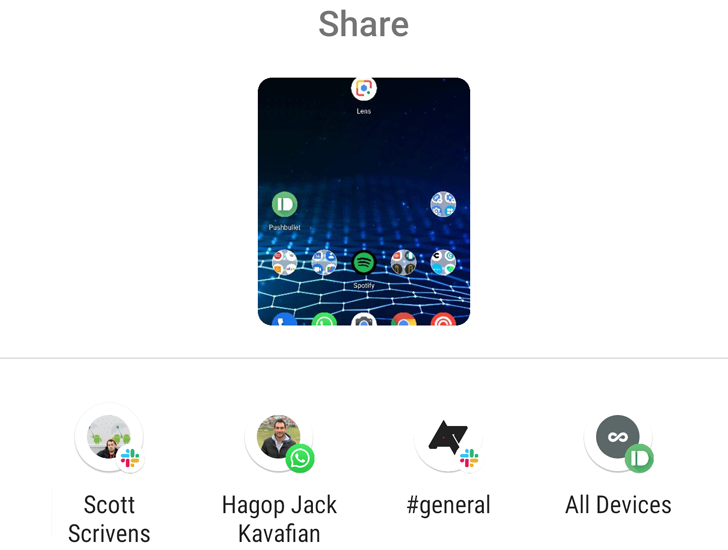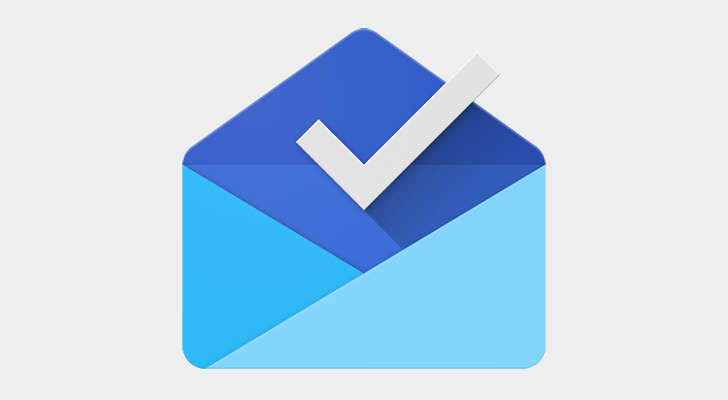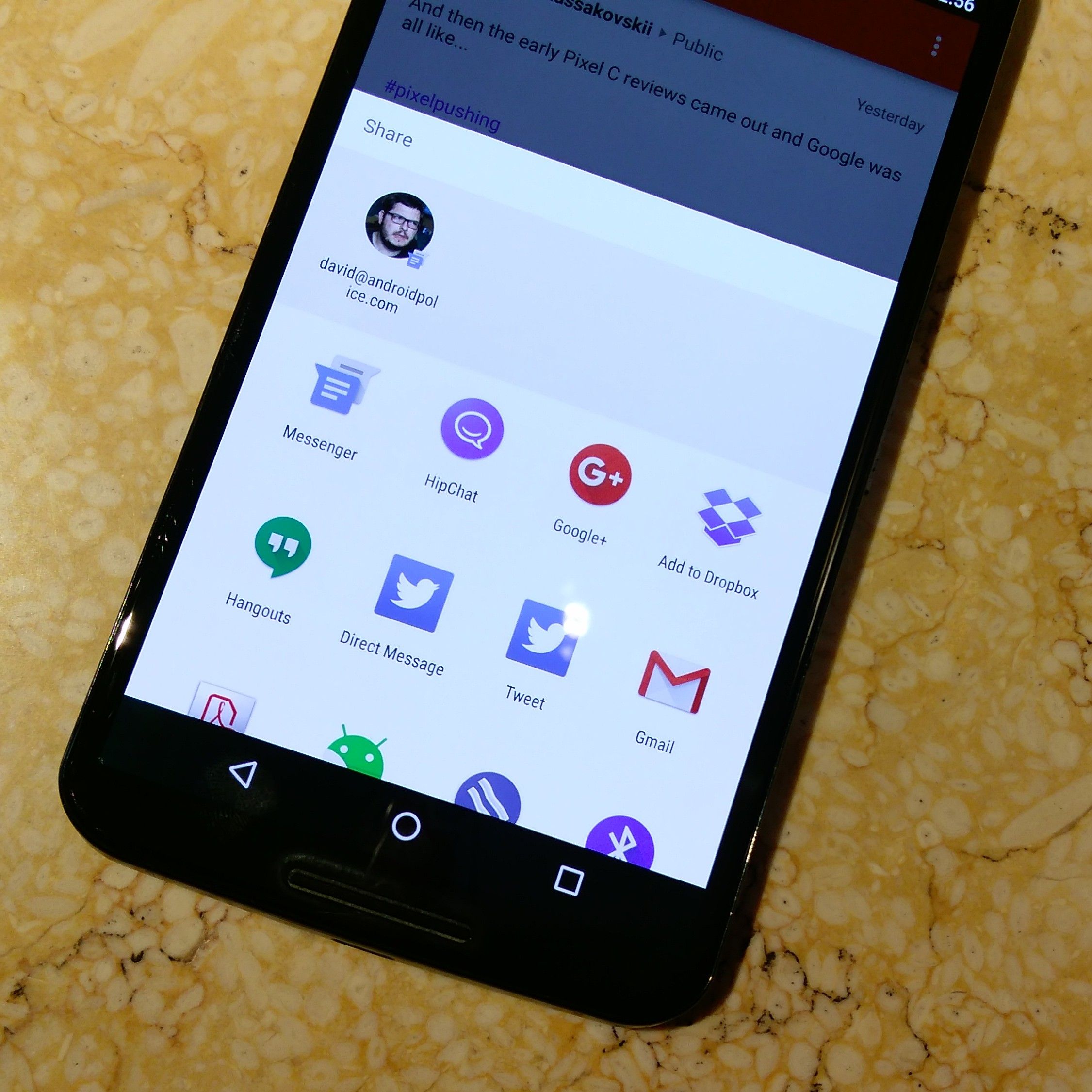latest

Sharing on Android has seen its ups and downs. Once one of the most powerful features of the platform, it became sluggish, inconsistent, and riddled with issues. Android Q was supposed to fix the speed problem, and even if it did (which I honestly can't tell anymore), it implemented a few other unwanted changes. Pinning apps on top is no longer possible, which means you're at the mercy of the algorithm for your direct share targets. And when the algorithm messes up, it messes up badly. One case I ran across lately is Messages taking over all eight direct share spots and not letting go of them, under any circumstance. I fumed and fumed over it, until I found a (rather simple) solution.

Read update
We've been very vocal about our irritation with Android's slow, buggy, and inconsistent Share menu. Prior to Android Q's release, we learned that Google was working on fixing it, and we started seeing the fruits of that change in Beta 1 and 2 thanks to a new push system that lets apps show their targets in the menu vs the pull system that was used before. In Q Beta 3, there are two changes to the native Share menu, one of which is a welcome comeback and the second a sad removal.

After more than two years without a major update, Pushbullet rose from the dead last month with a ton of new features. The app received a new bottom navigation bar, adaptive icon support, and a dark mode (if you have Pushbullet Pro). Another update has now arrived, with even more long-requested features.

It's no secret that we're not the biggest fans of Android's Share menu. A couple of months ago, I wrote an exposé detailing everything that's wrong with it, including its slowness, inconsistency, and the mess that is Direct Share. With Android P Developer Preview 4, which was released yesterday, Google decided to do one thing about it, but it's not what you think: Direct Share targets have been reduced to four.

Sharing from one app to another has been a mainstay of Android for years and years. It was one of the features that first drew me to Android: no more copying and pasting, no more having to open Twitter or WhatsApp to send a picture I just saw in my Gallery. Apps could talk to each other and the experience felt cohesive and seamless.

Android's direct share feature debuted on Marshmallow and makes it easy to share links or media from any app on your phone. You can use it with most popular messaging services, email clients, and even note-taking apps like Keep. To be able to share directly to an app, the maker of that app needs to implement direct share, so there are still some apps it doesn't work with. Instagram was on that list until pretty recently, but not anymore.

Allo received a mixed response when it was released a little over a month ago. Trying to switch your friends and family to yet another messaging client, especially one lacking in features (even compared to Google's other services), is difficult. Not long after its introduction, Allo's ranking tanked on the Play Store and App Store.

Facebook Messenger, mostly just referred to as Messenger these days, (or "I'll send you a link on Facebook") has improved at a rate of knots over the last year or so. It's had a material overhaul, nicknames and color functions added, group calling, games, new emojis, SMS support, and probably a lot more. Today another new feature has arrived Messenger, especially for Android: Direct Share.

Messaging and communication apps are some of the best targets of Marshmallow's Direct Share API. Instead of first picking up an app to share something to and then selecting a target contact, if an app has implemented the functionality, your most frequently contacted people within it will appear at the top-level of the Share menu, above the different app icons. It's a faster and more streamlined experience that I personally love and use several times a day on WhatsApp.

Hangouts for Android version 10.0 is now available for download - the big feature add? Direct share support, allowing you to share content directly to your commonly-used Hangouts contacts straight from the share menu. For big Hangouts users, this is a huge convenience when sending things like photos, videos, or even just simple links.

Twitter has a bit of a love/hate relationship with mobile platforms and Android in particular. On the one hand, it's so aggressively possessive and wants an exclusive relationship devoid of any third-parties, on the other it updates its apps at a nice pace and adds new features to them. Oh well, it did let Android users hang behind iOS more than once, but we're not holding grudges.

If you're on Android 6.0 and use the share menu regularly, you may have encountered a rather annoying issue with Android's Direct Share feature. The issue arises when the share dialog pops open and the direct share contacts don't load immediately. Instead, the UI loads, you go to tap what you want, and suddenly the direct share contacts appear and all the app share links get pushed down out of view. See the animations below for the Android 6.0 and 6.0.1 behaviors side by side - the broken version is on the left.

WhatsApp has been getting frequent beta updates that brought a lot of goodies to the app, and it's finally time for the Play Store version of the app to receive these. Version 2.12.367 has just gone live on the official Play Store channel and it brings with it the different new features that we've recently discussed: rich link previews, starred messages, and direct share on Marshmallow.

Pushbullet is all about sharing, version 17 seems a natural progression. You now have the option to insert Pushbullet targets into Android's share menu. Don't just send a file to Pushbullet—send it to a specific phone, tablet, or PC. This is through implementation of Android 6.0's Direct Share feature, which lets apps provide their own share options. In a future update, the developers want to prioritize whichever devices serve as frequent recipients.






